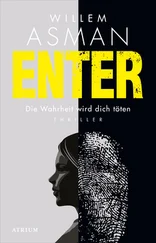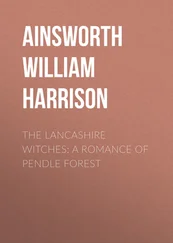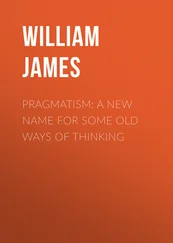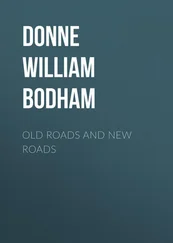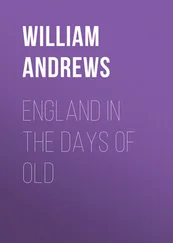William Axon - Echoes of old Lancashire
Здесь есть возможность читать онлайн «William Axon - Echoes of old Lancashire» — ознакомительный отрывок электронной книги совершенно бесплатно, а после прочтения отрывка купить полную версию. В некоторых случаях можно слушать аудио, скачать через торрент в формате fb2 и присутствует краткое содержание. Жанр: foreign_antique, foreign_prose, на английском языке. Описание произведения, (предисловие) а так же отзывы посетителей доступны на портале библиотеки ЛибКат.
- Название:Echoes of old Lancashire
- Автор:
- Жанр:
- Год:неизвестен
- ISBN:нет данных
- Рейтинг книги:3 / 5. Голосов: 1
-
Избранное:Добавить в избранное
- Отзывы:
-
Ваша оценка:
- 60
- 1
- 2
- 3
- 4
- 5
Echoes of old Lancashire: краткое содержание, описание и аннотация
Предлагаем к чтению аннотацию, описание, краткое содержание или предисловие (зависит от того, что написал сам автор книги «Echoes of old Lancashire»). Если вы не нашли необходимую информацию о книге — напишите в комментариях, мы постараемся отыскать её.
Echoes of old Lancashire — читать онлайн ознакомительный отрывок
Ниже представлен текст книги, разбитый по страницам. Система сохранения места последней прочитанной страницы, позволяет с удобством читать онлайн бесплатно книгу «Echoes of old Lancashire», без необходимости каждый раз заново искать на чём Вы остановились. Поставьте закладку, и сможете в любой момент перейти на страницу, на которой закончили чтение.
Интервал:
Закладка:
Mrs. Gaskell wrote a sketch – “The Squire’s Tale” – based on the career of Higgins, which appeared in Household Words , and is reprinted in her collected writings. When the Rev. Henry Green was preparing his history of Knutsford he carefully collected all the information that could be found respecting the gentleman highwayman. Edward Higgins deserves some remembrance not only for the strangeness of his career, but for his posthumous influence upon English literature.
Some Lancashire Centenarians
According to the census of 1891 there were 146 persons enumerated who were returned as being more than 100 years of age. Eleven of these were resident in Lancashire. It may be interesting to compare this with the statements in some of the preceding census reports. Arranged in tabular form, the following results are seen: —
Centenarians returned at each successive census.
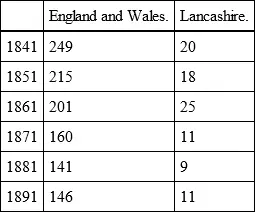
In Lancashire, it will be noticed, there has been a marked tendency towards the diminution of reputed centenarians. The general consent of mankind seems to have fixed upon a hundred years as almost the outside limit for the duration of human life. The Hebrews and the Chinese are agreed in this. The Celestials have a quaint way of dividing a life into cycles. From birth to 10 years of age is the opening degree; at 20, youth expired; 30, strength and marriage; 40, officially apt; 50, error knowing; 60, cycle closing; 70, rare bird of age; 80, rusty visage; 90, delayed; 100, age’s extremity. Far more claims to great longevity are made than can be sustained by reasonable evidence, and it should not be forgotten that the burden of proof belongs to those who make these statements. The bulk of mankind do not exceed, and many of them never attain, the Psalmist’s term of three score years and ten, and it is only reasonable that those who claim for themselves or protégés an existence of five or six score should be required to produce adequate evidence in support of their allegations. Curiously enough until the second half of the present century statements of extreme old age appear to have been accepted without doubt or inquiry. In the census report of 1851 a sceptical note was struck, and since then the late Sir G. C. Lewis and Mr. W. J. Thoms – especially the latter – have done useful service by a persistent demand for evidence. Under investigation some cases have proved to be impostures, and others mistakes and self-deceptions.
The historian of the county of Lancaster claims for Ormskirk parish the prevalence of an unusual degree of longevity. In the churchyard there are gravestones over four venerable parishioners, which record that the first of them died at the advanced age of 94, the second at the age of 102, the third at the age of 104, and the fourth at the age of 106 years. Many centenarians, real or supposed, have been connected with Lancashire, and it is more than probable that a rigid investigation at the time would greatly have reduced the number. They are here presented in chronological order, and have been derived from a variety of sources: —
1668. – Dr. Martin Lister, writing to the Royal Society, says that John Sagar, of Burnley, died about the year 1668, “and was of the age (as is reported) of 112.”
1700. – “Here resteth the bodie of James Cockerell, the elder, of Bolton, who departed this lyfe in the one hundredth and sixthe yeare of his age, and was interred here the seventh day of March, 1700” (Whittle’s “Bolton,” p. 429).
1727. – In the diary of William Blundell, of Crosby, under date 21st January, 1727, there is this entry: – “I went to Leverp: and made Major Broadnax a visit, he told me that in March next he will be 108 years of Aige, he has his memory perfectly well, and talks extreamly strongly and heartally without any seeming decay of his spirrits.” This, according to the Rev. T. E. Gibson, was “Colonel Robert Broadneux, at one time gentleman of the Bedchamber to Oliver Cromwell, and afterwards Lieut. – Col. in the Army of King William, died the following January, and was buried in St. Nicholas’ churchyard, Liverpool, where his memorial stone may still be seen. He is there credited with 109 years, which, according to the diarist’s account, is one too many.”
1731. – Timothy Coward, of Kendal, 114.
1735. – James Wilson, of Kendal, 100.
1736. – Roger Friers, of Kendal, 103.
1743. – Mr. Norman, of Manchester, 102.
1753. – Thomas Coward, of Kendal, 114. The following is an inscription on a tombstone in Disley Church: —
“Here Lyeth Interred the
Body of Joseph Watson, Buried
June the third, 1753,
Aged 104 years. He was
Park Keeper at Lyme more
than 64 years, and was ye first
that Perfected the Art of Driving
ye Stags. Here also Lyeth
the Body of Elizabeth his
wife Aged 94 years, to whom
He had been married 73 years.
Reader, take notice, the Longest
Life is Short.”
This Joseph Watson was born at Mossley Common, Leigh, Lancashire, in 1649. Watson was park-keeper to Mr. Peter Legh, of Lyme. About 1710, in consequence of a wager between his employer and Sir Roger Moston, Mr. Watson drove twelve brace of red deer from Lyme Park to Windsor Forest as a present for Queen Anne. He was a man of low stature, fresh complexion, and pleasant countenance. “He believed he had drunk a gallon of malt liquor a day, one day with another, for sixty years; he drank plentifully the latter part of his life, but no more than was agreeable to his constitution and a comfort to himself.” In his 103rd year he killed a buck in the hunting field. He was the father of the Rev. Joseph Watson, D.D., rector of St. Stephens, Wallbrook, London.
1755. – Mr. Edward Stanley, of Preston, was buried in that town 4th January, 1755, at the reputed age of 103. He was one of the Stanleys of Bickerstaffe – the branch of the family that eventually succeeded to the Earldom of Derby. His father was Henry Stanley, the second son of Sir Edward Stanley, of Bickerstaffe.
1757. – James Wilson, of Kendal, 100.
1760. – Elizabeth Hilton, widow, of Liverpool, 121.
1761. – Isaac Duberdo, of Clitheroe, 108. Elizabeth Wilcock, of Lancaster, 104. John Williamson, of Pennybridge, 101. William Marsh, of Liverpool, 111, pavior.
1762. – Elizabeth Pearcy, of Elell, 104. Elizabeth Storey, of Garstang, 103.
1763. – Mr. Wickstead, of Wigan, 108, farmer. Thomas Jackson, of Pennybridge, 104. Mrs. Blakesley, of Prescot, 108. Mr. Osbaldeston, near Whaley, 115.
1764. – James Roberts, of Pennybridge, 113.
1765. – Mr. Glover, of Tarbuck, 104.
1767. – George Wilford, of Pennybridge, 100. William Rogers, of Pennybridge, 105. Thomas Johnson, of Newbiggin, 105.
1770. – Ellin Brandwood, Leigh, 102.
1771. – Nathaniel Wickfield, of Ladridge, 103. Mr. Fleming, of Liverpool, factor, 128. He left a son and a daughter each upwards of a hundred.
1772. – Mr. Jaspar Jenkins, whose death at Enfield in the 106th year of his age is recorded in the Gentleman’s Magazine for 1772, was formerly a merchant of Liverpool.
1778. – John Watson, Limehouse Park (of which he was keeper), 130. Mr. Husan, of Wigan, 109.
1779. – Susan Eveson, Simmondsone, near Burnley, 108.
1780. – William Ellis, of Liverpool, shoemaker, 131. He was seaman in the reign of Queen Anne, and a soldier in the reign of George I. Thomas Keggan, of Liverpool, 107.
1781. – Peter Linford, of Maghall, Liverpool, 107.
1782. – Henry Lord, of Carr, in the Forest of Rossendale, 106. He was a soldier in the service of Queen Anne. Martha Ramscar, of Stockport, 106.
Читать дальшеИнтервал:
Закладка:
Похожие книги на «Echoes of old Lancashire»
Представляем Вашему вниманию похожие книги на «Echoes of old Lancashire» списком для выбора. Мы отобрали схожую по названию и смыслу литературу в надежде предоставить читателям больше вариантов отыскать новые, интересные, ещё непрочитанные произведения.
Обсуждение, отзывы о книге «Echoes of old Lancashire» и просто собственные мнения читателей. Оставьте ваши комментарии, напишите, что Вы думаете о произведении, его смысле или главных героях. Укажите что конкретно понравилось, а что нет, и почему Вы так считаете.


